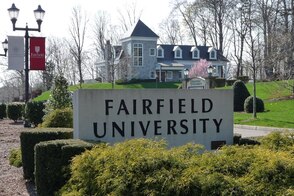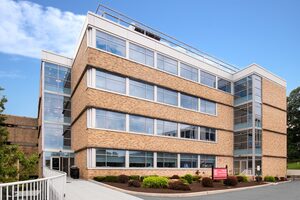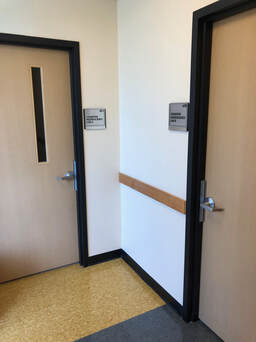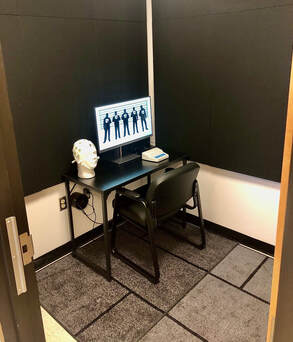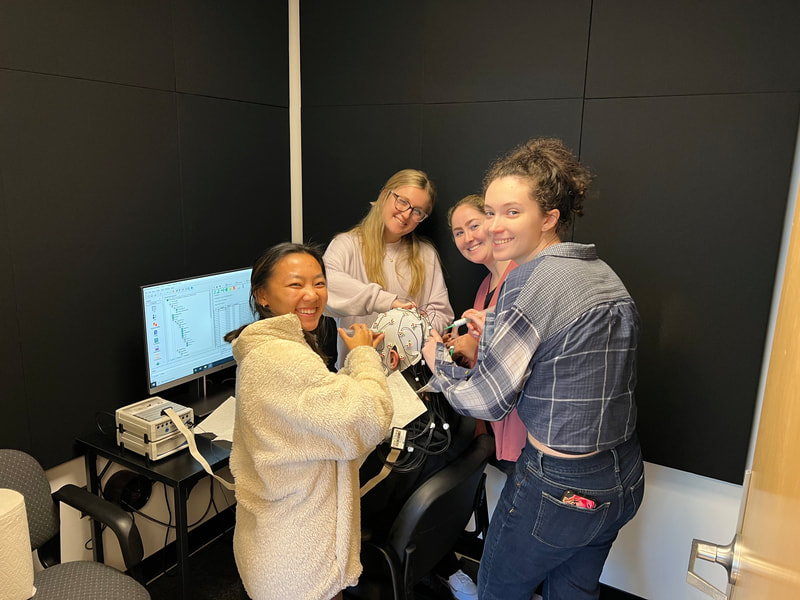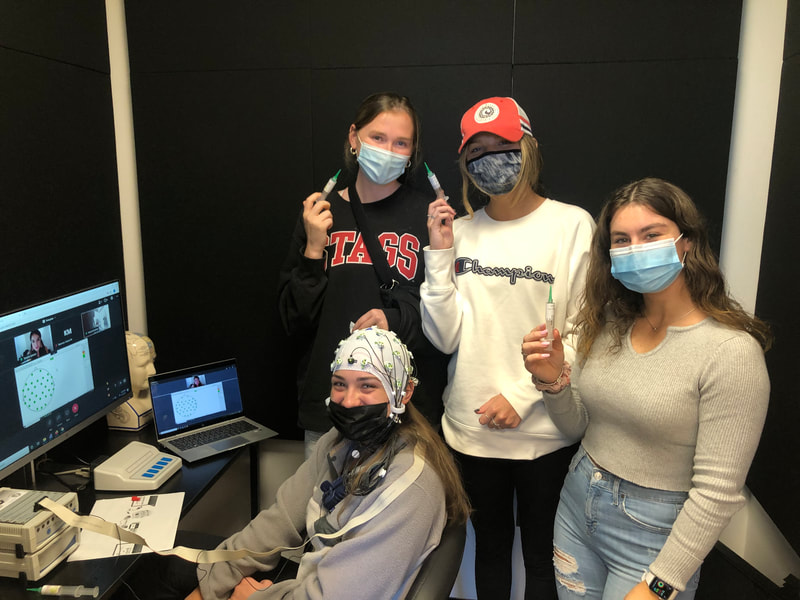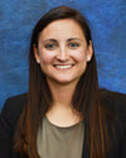Memory & Cognitive Neuroscience Lab
The Memory & Cognitive Neuroscience Lab investigates the manner in which true and false memories are constructed using a variety of methods, including functional magnetic resonance imaging (fMRI), electroencephalography (EEG), transcranial magnetic stimulation (TMS), behavioral paradigms, and physiological measures. Ultimately, we hope to apply our theoretical understanding of memory construction to both protect the integrity and improve the quality of human memory in real-world contexts.
Jessica M. Karanian
|
Bio: In 2019, Dr. Karanian joined the faculty at Fairfield University. She received her Ph.D. in Cognitive Neuroscience from Boston College with Dr. Scott Slotnick and completed postdoctoral training at Tufts University with Dr. Ayanna Thomas and Dr. Elizabeth Race. Dr. Karanian completed her undergraduate work at Fairfield University in 2012.
Prior to returning to her alma mater, Dr. Karanian was a Visiting Assistant Professor of Cognitive Neuroscience at Wesleyan University and an Assistant Professor of Psychology at John Jay College of Criminal Justice. Dr. Karanian's research on human memory has been funded by the National Science Foundation, American Psychological Association, Association for Psychological Science, and the Sigma Xi Society. Her publications can be found here. |
Erin Shah |
Bio: Coming soon
|
Casey Nadzam |
Bio: Coming soon
|
Lab Alumni
2024:
Kellyn Kuczarski: The relationship between working memory and the misinformation effect: A Behavioral and EEG Investigation
2023:
Liana Marino: PSA-Style warnings and the misinformation effect
2022:
Matt LaGanza: Investigating the effect of warning salience on the misinformation effect
Kate Bloss: Using ERPs to investigate the misinformation effect
Shauna Harney: Using ERPs to investigate the misinformation effect
Sydney Lerz: Using ERPs to investigate the misinformation effect
2021:
Tal Nizan: Using ERPs to investigate the nature of false memories for spatial location
Maddie Mello: Investigating the effects of double warnings on memory in the face of misinformation
Jordan Chicoski: Investigating the effects of warning on memory in the face of misinformation
Kayla Beck: Investigating the effects of warning on memory in the face of misinformation
2020:
Katherine Trykowski (Fairfield University): The effects of coherence of co-witness statements on memory for an event.
Angelina Vasquez (John Jay College): Memory and social media.
Catherine Hackett (John Jay College): Impact of Think/No-Think Paradigm on Memory for Inadmissible Evidence.
2019:
Alba Cruz Vargas (John Jay College): Remembering and suppressing color information.
Gillianne Oyola (John Jay College): Remembering and suppressing color information.
Max Gould (Volunteer Research Assistant): Meta-analysis on false memory and the role of the visual cortex.
2015-2018:
Ilaria Schlitz (Wesleyan University): The Jury’s Out: An analysis of juror perception of child eyewitnesses and its validity.
Xiaolin Chen (Boston College): Assessing the timing of judicial instructions: Evidence from psychological research.
Emily Blanco (Boston College): The effect of repeated questioning on eyewitness memory under conditions of stress and subtle misinformation.
Kellyn Kuczarski: The relationship between working memory and the misinformation effect: A Behavioral and EEG Investigation
2023:
Liana Marino: PSA-Style warnings and the misinformation effect
2022:
Matt LaGanza: Investigating the effect of warning salience on the misinformation effect
Kate Bloss: Using ERPs to investigate the misinformation effect
Shauna Harney: Using ERPs to investigate the misinformation effect
Sydney Lerz: Using ERPs to investigate the misinformation effect
2021:
Tal Nizan: Using ERPs to investigate the nature of false memories for spatial location
Maddie Mello: Investigating the effects of double warnings on memory in the face of misinformation
Jordan Chicoski: Investigating the effects of warning on memory in the face of misinformation
Kayla Beck: Investigating the effects of warning on memory in the face of misinformation
2020:
Katherine Trykowski (Fairfield University): The effects of coherence of co-witness statements on memory for an event.
Angelina Vasquez (John Jay College): Memory and social media.
Catherine Hackett (John Jay College): Impact of Think/No-Think Paradigm on Memory for Inadmissible Evidence.
2019:
Alba Cruz Vargas (John Jay College): Remembering and suppressing color information.
Gillianne Oyola (John Jay College): Remembering and suppressing color information.
Max Gould (Volunteer Research Assistant): Meta-analysis on false memory and the role of the visual cortex.
2015-2018:
Ilaria Schlitz (Wesleyan University): The Jury’s Out: An analysis of juror perception of child eyewitnesses and its validity.
Xiaolin Chen (Boston College): Assessing the timing of judicial instructions: Evidence from psychological research.
Emily Blanco (Boston College): The effect of repeated questioning on eyewitness memory under conditions of stress and subtle misinformation.
